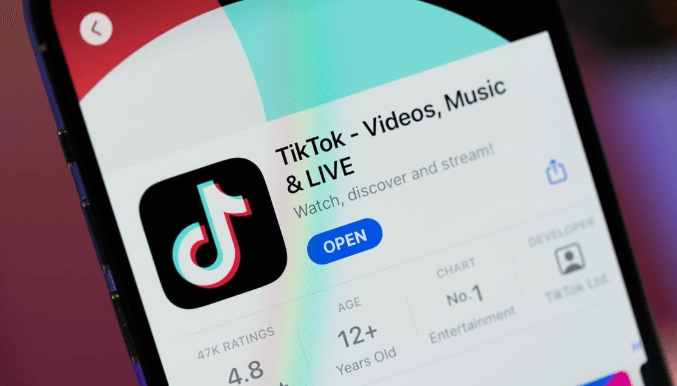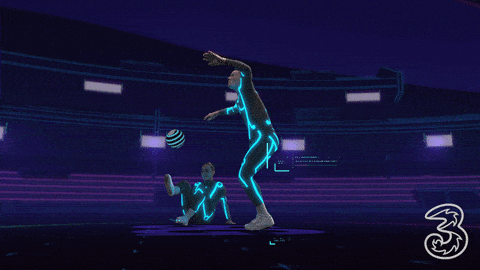- TECHSWU
- Posts
- TECHSWU
TECHSWU


If TikTok were to face a ban in the U.S.
, it could pave the way for other social media platforms to thrive, with Snapchat positioned as a major beneficiary. Recent reports highlight that the uncertainty surrounding TikTok has already propelled Snapchat's user engagement, with an impressive 40% increase in creators on its short-form video feature, Spotlight.
CEO Evan Spiegel has acknowledged this uptick as users seek alternatives amidst TikTok's unpredictable future. Additionally, other major players like YouTube and Meta are also seeing a boost in engagement, demonstrating the far-reaching impact of TikTok's troubles on the social media landscape.
As the debate over TikTok's ownership continues, platforms ready to fill the potential void are preparing for a shift in user attention and content creation.

Get ready for a tech spectacle as Ray-Ban Meta glasses make their grand comeback during the Big Game! With their first Super Bowl ad in three years, this campaign features beloved stars Chris Hemsworth, Chris Pratt, and Kris Jenner showcasing the glasses' quirky capabilities in humorous skits. Meta aims to demonstrate how these AI-powered shades can enrich daily life by keeping users connected, capturing memories, and elevating the game-day experience—whether at home or in the stadium.
The commercials, crafted by Meta's Creative X and directed by Matthew Vaughn, will air in two exhilarating slots during the game. Viewers can also catch teasers across digital and social platforms leading up to the event, all while anticipating which brand might snag the coveted 2025 Super Clio award.

Gif by threeuk on Giphy

In a captivating exploration of the rapidly evolving landscape of artificial intelligence, Rachel Lomasky delves into the phenomenon of AI disrupting itself. With the imminent release of new open-source models poised to surpass the groundbreaking DeepSeek, the article underscores the relentless pace of innovation in the AI realm.
As companies vie to outdo one another, we can anticipate a surge of models that not only replicate but also enhance existing technologies, driving efficiency and accuracy to new heights. This vibrant cycle of competition fuels creativity and progress, promising even more transformative developments on the horizon.
As the AI revolution unfolds, one thing is clear: we should brace ourselves for an exciting ride as technology continues to surpass our expectations.

A groundbreaking new laser technology has been unveiled, capable of capturing detailed 3D images of human faces from a staggering half a mile away! Developed by researchers at Heriot-Watt University, this advanced LiDAR system uses “single-photon time-of-flight” technology, which allows it to see through challenging conditions like fog and smoke. Equipped with a highly sensitive superconducting nanowire single-photon detector, the system boasts remarkable depth resolution—ten times better than previous models.
Its innovative design not only offers enhanced security and monitoring capabilities but also paves the way for remote identification of objects in cluttered environments. The team has ambitious plans to extend testing to a whopping 6.
2 miles, promising even greater applications in surveillance and environmental monitoring.


In his engaging exploration, Donald I. Siegel reflects on the chaotic first week of President Trump’s presidency, expressing concern for the nation.
Amidst his political frustrations, he turns to poetry for solace while contemplating the implications of artificial intelligence in creative writing. Highlighting a recent Nature article that discusses AI-generated poems, Siegel experiments with ChatGPT to craft a poem inspired by current political events.
His piece, "Hearts’ Whispers," blends themes of dread and hope, emphasizing the diverse tapestry of American perspectives. He sees AI as a tool for igniting creativity, although heavily edited to retain authenticity.
Ultimately, Siegel advocates for the power of poetry to navigate the tumultuous political landscape and urges readers to find common ground through the appreciation of differing sentiments, encouraging a spirit of compromise. This blend of politics and art showcases his belief in the importance of metaphor and emotional expression in a divided world.
TikTok has unveiled an exciting new AI tool called OmniHuman, capable of transforming a single photo into a fully animated video. Designed by ByteDance, OmniHuman mimics gestures, facial expressions, and body movements, breathing life into static images.
With over 18,700 hours of video training, this technology can turn ordinary photos into captivating performances, dances, or even musical acts. While currently a research project, OmniHuman could soon revolutionize content creation on TikTok, attracting users looking for dynamic storytelling options.
It also holds potential applications in restoring historical figures, creating digital avatars, and even in filmmaking for resurrecting past actors. With competitors like OpenAI and Runway in the mix, OmniHuman is poised to make waves in the world of AI-generated media.

In "How AI is Changing Everyday Life," Laksha Kamlesh explores the profound impact of artificial intelligence on our daily experiences, highlighting its evolution from a sci-fi concept to an integral part of everyday routines. AI enhances everything from streaming services that recommend personalized content to online shopping platforms that predict consumer preferences.
In healthcare, AI aids in early disease detection and personalized treatment, while smart home devices adapt to user habits, improving efficiency and comfort. Educational tools like Duolingo and Khan Academy leverage AI to customize learning experiences, breaking barriers for students globally.
Despite its many benefits—like filtering spam and improving customer service—AI also prompts vital discussions regarding ethical issues such as privacy and job displacement. As AI continues to progress, it reshapes how we engage with the world, asking us to balance innovation with responsibility in our tech-driven lives.